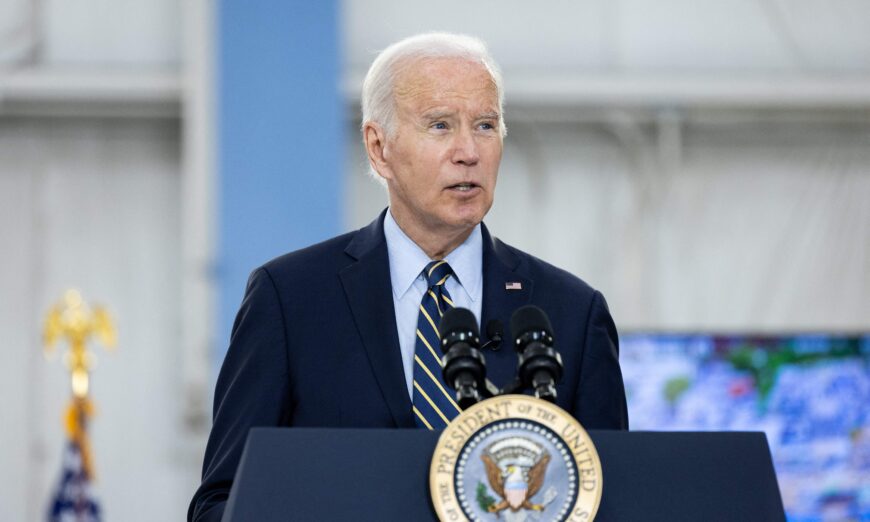Lawmakers praise CHIPs Act’s impact on US-China competition.
Boosting Domestic Production of Semiconductors: The CHIPS Act
Last August, President Joe Biden signed the Chips and Science (or CHIPS) Act into law, promising over $50 billion to domestic semiconductor manufacturers to boost domestic production and “counter China.” Pivotal in drafting and negotiating on behalf of the law was Sen. Mark Kelly (D-Ariz.), who beat out Republican candidate Blake Masters in the 2022 midterm elections.
Communist China or American Free Enterprise?
“After over a year of hard work, our landmark microchip manufacturing bill is now law,” the senator said in a statement after the bill’s passage last year, adding that the measure would boost Arizona’s competitiveness in the chip industry and be a “big loss for China.”
However, one economist argued that the policy is actually more aligned with the values of communist China than those of American free enterprise.
“The CHIPS Act is just another example of top-down industrial planning that is more reminiscent of Maoist China than an ostensible market economy,” Mises Institute senior fellow Robert Murphy told The Epoch Times.
Disincentivizing Innovation?
Another concern among free-market economists is that by flushing historically uncompetitive American firms with new capital, the law will disincentivize innovation by artificially propping up the revenue of domestic chip companies without their needing to improve the product. When asked about this, Kelly, a former astronaut, argued corporate profits are frequently reinvested into research and development, so this should be no different.
Geopolitical Concerns
Sen. Todd Young (R-Ind.), who similarly stressed the geopolitical concerns that were the impetus behind the bill’s passage.
“We’re in a global competition here,” he said. “As it relates to the highest-end chips, there’s a national security justification for having domestic supply.”
Implementation Strategy
Murphy acknowledged that parts of the law are not all bad but still disagreed with the implementation strategy, saying it leaves too much discretion to the federal government.
“There are some individual elements that are defensible—such as providing investment tax credits—but even there, it would make more sense to give a broad-based tax rate reduction on all businesses, not targeted breaks where the government picks politically favored firms and techniques.”
" Conservative News Daily does not always share or support the views and opinions expressed here; they are just those of the writer."




